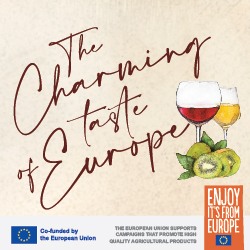
Reflections from the Other Side of Reason – Emergence
Since 2013, recognized author and community leader for mental health, David Gibson, has battled the inner world of PTSD to find some measure of hope within. He uses his writing to explore how his journey as a survivor has enabled him to come to terms with PTSD and the new reality of his life. His 'Reflections from the Other Side of Reason' not only invite the reader into his life, but offers insights on how to grow and build resiliency. By sharing his experiences he takes away any toll for others to walk down the same road
[Emergence]
Fluttering wisps of time hang onto the cusp of a new summer day.
Life can be like that.
Fickle like the wind.
Silent like the trace of a ripple on the surface of the lake.
Yesterday lying on the ground was an emerald green dragonfly.
It was so delicate, radiant, stunning and knew it.
I want to be like that, never forgetting my own beauty.
Never forgetting the emergence of myself.
"Owning your story is the bravest thing you will ever do" – Brené Brown
At a recent presentation on trauma and PTSD, I spoke about not wanting to live by the label of ‘accident victim’ or ‘trauma survivor’ – that having a mental health issue or illness will not define who I am. Interestingly and not surprising by any means, I was challenged by one of the audience members on why I would say such a thing? From her perspective survivorship has been her foundation for building and maintaining support, growth and identity.
I responded to her that I couldn’t agree more with her statement and how she feels and views survivorship. Healing and recovery from my perspective, are very intimate and personal journeys that mean different things to different people.
Interestingly enough, and as I have discovered, the preference for “survivor” over “victim” is a shift in language that is as much ideological as linguistic.
In “Bright-Sided,” her 2009 critique of America’s obsession with positive thinking, Barbara Ehrenreich noted a similar development among cancer patients. “The word ‘victim’ is proscribed,” she writes, deemed too self-pitying.
Forceful metaphors are preferred, and those who “lost the battle” are quickly forgotten. “It is the ‘survivors’ who merit constant honor.” And so, the pendulum swings from one extreme to another: from casting recovery from trauma as insurmountable pain to casting the survivor as possessing superhuman strength.
It’s what Virginia Woolf described in her essay of 1929 as “looking-glass shame”— that terror of facing your vulnerability — a treasonous thought in a society that is desperately optimistic and addicted to recovery narratives. But generally, the onus seems to be not only to survive, but to do so as quickly as possible, and then to lift up others.
The question of what position to take toward our own pain is unexpectedly complicated. How do we understand our own suffering — with what words and to what ends? Does great suffering always diminish us? These are the kinds of currents swirling around the word “survivor,” the increasingly popular term for people who have experienced trauma.
There is this notion of the establishment of the “invisible cost” of being a survivor: “You’re best known for enduring the worst experiences of your life.” How ironic though, that the word ‘survivor’ was conceived to free people from stigma, and now feels to me, more prescriptive and life-long.
I find that the word ‘survivor’ places the burden of healing square on the shoulders of the individual, while comfortably erasing the systems and structures that make surviving, harder for some than for others.” The logic of “compulsory survivorship” neatly anticipates the conditions so many victims of trauma face: the disbelief or indifference, the scarcity of social or mental health support and the isolation of living in silent fear.
In Japanese, the word “trauma” is expressed with a combination of two characters: “outside” and “injury.” Trauma is a visible wound — suffering we can see — but it is also suffering made public, hardened into identity and, inevitably, simplified. Perhaps there was some latent wisdom in Woolf’s awkward little phrase: “the person to whom things happen.” It’s roomy and doesn’t pin you down at any stage of suffering or recovery. It centers the person and not the event — which is crucial. Those who have faced trauma are so commonly sentimentalized or stigmatized, cast as uniquely heroic or uniquely broken.
Everything can be projected upon them, it seems — everything but the powers and vulnerabilities of being an ordinary person.
Until next time.












